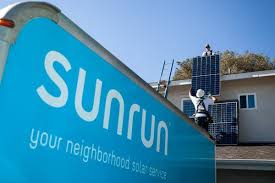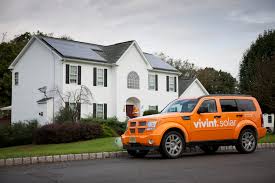
Leading U.S. home solar installer Sunrun has agreed to acquire its biggest rival, Vivint Solar.
Sunrun plans to buy Vivint Solar for an enterprise value of $3.2 billion, a price tag that rivals that of other high-profile clean energy acquisitions: Tesla bought SolarCity for $2.6 billion in 2016, while Google acquired Nest for $3.2 billion in 2014 reported Green Tech Media.
The stock-for-stock deal will grow the portfolio of Sunrun, already the nation’s top home solar installer, to more than 3 gigawatts and around 500,000 customers. That would make Sunrun the third-largest owner of U.S. solar capacity across all market segments, and the company sees a clear path to the No. 1 spot, company officials said.
Sunrun and Vivint Solar held a combined 17.5 percent share of the U.S. residential solar market in 2019, according to Wood Mackenzie. The No. 3 player, Tesla, had a 4.6 percent market share.
The acquisition would roll together two companies with significantly overlapping business models and similar visions for a distributed energy future. Though Sunrun and Vivint Solar have slightly different geographic coverage areas, both install rooftop solar across much of the country through leases, loans and direct sales.
“We have big ambitions for what we can accomplish together,” Sunrun CEO Lynn Jurich said Tuesday on a call with analysts and reporters. “We are only scratching the surface of our opportunity; today only 3 percent of [U.S.] households have made the transition to home solar.”

“At a larger scale, with more customers and a lower cost structure, Sunrun will be a meaningful contributor to a fully renewable and electrified energy system,” Jurich said.
Sunrun and Vivint compete with a few other national installation companies, such as Tesla and Sunnova, as well as a long list of smaller regional or local players.
The market cheered the news, with Sunrun shares surging more than 20 percent on Tuesday, reaching an all-time high of around $26. Vivint Solar’s shares were up more than 38 percent.
Cost efficiencies will be critical to expanding residential solar markets in the mid-2020s as the federal Investment Tax Credit for solar steps down, said Ravi Manghani, WoodMac’s head of solar. “While it will be months if not years till the outcome of the proposed acquisition will be clear, I do think there’s something in here, strategically speaking.”
“Vivint, with its direct sales channel and healthy margins on system sales, offers Sunrun an expanded canvas and an opportunity to capitalize on higher storage attachments and grid services plays, all while potentially improving operational and financing costs,” Manghani said in an email.
Based on July 6 stock prices, when the deal was announced, the combined company would have a market capitalization of $4.5 billion, and an enterprise value — or market capitalization plus debt — of $9.2 billion. Vivint shareholders would exchange their stock for 0.55 shares of Sunrun, giving them a 36 percent stake in the company.
The boards of both companies have approved the sale, though stockholders and regulators must still do so. Sunrun expects the deal to close in late 2020. Vivint Solar CEO David Bywater would join Sunrun’s board.
This isn’t Vivint Solar’s first dance with a larger renewables company. SunEdison offered to acquire it for $2.2 billion in 2015, but that deal fell apart amid the larger unraveling of the would-be renewables supermajor in March 2016.
Source: GreenTech Media





